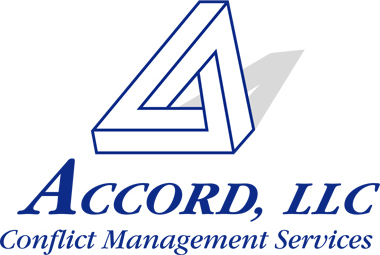
610.783.4519
Helping Businesses Get Back To Business
Smart Companies Use Conflict Management Programs (02/11)
Author: Judy Weintraub, Advanced Business Law Resources
How much are disputes costing your company? In the business world, the number and severity of disputes that companies are encountering have been increasing. Conflicts arise in different areas, including corporate governance disputes, conflicts between co-workers or other employment related disputes, and disputes with customers, vendors, joint venture partners or competitors. Disputes can be very expensive, not just in terms of the legal expenses associated with them, but also the management time spent dealing with them, the damage to relationships and the inefficiencies that can result, such as delays, loss of quality and poor decisions. Particularly in today’s economic climate, where money is tight, finding ways to reduce expenses is critical.
To address the cost of disputes, many companies are implementing conflict management programs, and finding that such programs are very successful. Companies such as Georgia Pacific, General Electric, Swiss Re, E. I. duPont and Coca Cola Enterprises have had conflict management programs for years, and have found that such programs have saved them millions of dollars. At the International Bar Association meeting in Vancouver in October, 2010, David Burt of E.I. duPont’s legal team reported that personal injury cases that are mediated rather than litigated have resulted in a savings of $76,000 per case; employment mediations save an average of $61,000 per case; and business-to-business mediations save a whopping $350,000 per case!
It is not surprising that such programs save money. Most conflict management systems involve mechanisms to detect and resolve disputes early, when knowledge of the circumstances is fresh and management of the dispute is most effective. Consequently, there is much less animosity and it is much less expensive to resolve the disputes.
There are many different types of conflict management programs. For instance, some programs focus only on employment related disputes, while others cover primarily corporate governance issues, or business-to-business disputes. Some programs use in-house staff members who have received training in conflict resolution to serve as neutrals while others use an ombudsperson or select a third-party provider of dispute resolution services.
Determining which elements of a conflict management system would be most appropriate for a company would require an analysis of the particular types of disputes the company is encountering, the company’s strategy and goals and other factors. It takes time and effort to conduct the assessment, design the program and implement it; but as many companies have already discovered, conflict management programs make a lot of sense and save a lot of cents.
Judy Weintraub is a co-founder of Advanced Business Law Resources, a company offering training in dispute resolution and consulting in the development of conflict management programs. For more information, see www.ablr.biz.
1. “ADR: The Customer’s Perspective”, posted in The Business Conflict Blog, by F. Peter Phillips on October 21, 2010.
Copyright 2010 ACCORD, LLC.